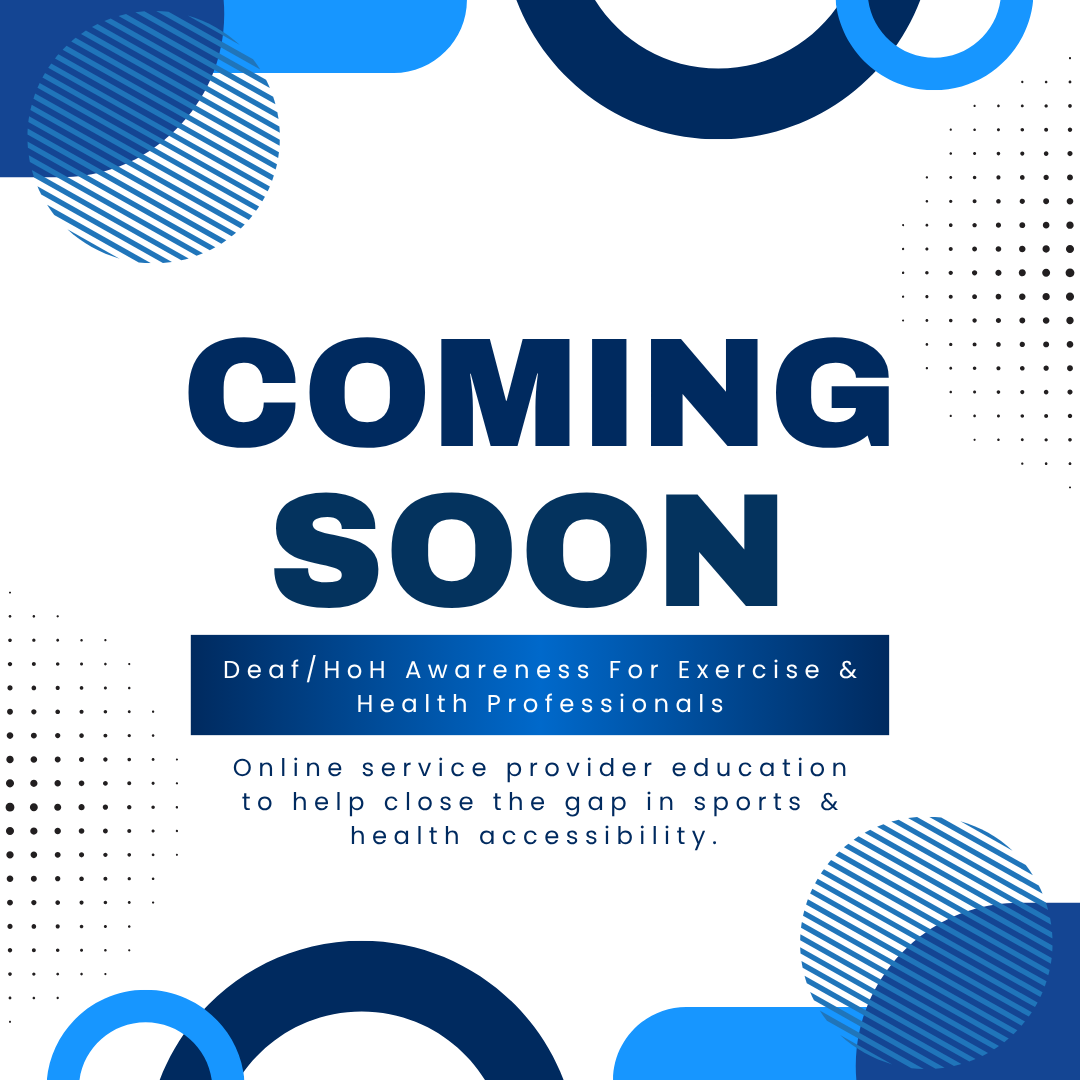Meet Bri!
Bri is an Exercise Physiologist and Deaf Ally. She delivers inclusive exercise services and educational resources to help health and sport professionals better support Deaf and Hard of Hearing (HoH) communities. Bri describes her work as sitting at the intersection of movement, health, and accessibility. Growing up around the Deaf community through her closest friendships shaped her values early on and inspired her to drive change in this space. Bri aims to ignite a paradigm shift - where sensory differences are valued for their strengths and unique contributions to society, rather than viewed as deficits. “I believe the benefits of sport and movement shouldn’t depend on how well someone fits into the system - they should be accessible to everyone,” states Bri.
Over the years, Bri has heard countless stories of exclusion, audism, and systemic barriers that deprived people of their right to feel safe, empowered, and included in movement. These experiences inspired her to create Deaf awareness workshops. Bri says, “I believe sensory differences bring strengths, unique perspectives, and cultural richness - the real ‘disability’ often lies in how society excludes people, not in their level of abilities.” She has discovered that while most sport and exercise professionals want to be inclusive, they often lack the tools to do so. Bri’s goal is to bridge that gap and make inclusion practical, not overwhelming.
Bri advocates for accessibility to be built into the foundations of all programs, not treated as an afterthought. She champions accessible communication, captioning, basic awareness, and staff training as essential standards - meaning that Deaf voices must be included throughout program design. Bri notes, “When people with lived experience shape the systems, we create environments where access is the default, and where sensory differences are seen as assets, not deficits.”
Bri explains that simple changes can help clubs become more welcoming to Deaf and HoH participants right now. This starts with more visual communication, such as demonstrations, written information, clear visual signals, and facing the group while speaking. Learning basic signs like‘start’, ‘stop’, or ‘go’ can make a significant difference. She emphasises that clubs need clear messaging to show that Deaf and HoH people are welcome - visibility matters! These changes cost nothing, yet they speak volumes and can make a huge impact on how safe and included someone feels.
“Inclusion doesn’t have to be perfect; it just has to be intentional,” says Bri. She suggests starting small - learning about the community, investing in Deaf awareness training (many are affordable or even free), and not hesitating to ask questions or admit you are learning. Every small action helps to bridge the gap!
Bri believes that improving accessibility in sport allows people to focus their energy on personal and physical development, rather than on navigating barriers. This shift helps build connection, self-efficacy, and confidence in movement. Bri states, “Accessibility isn’t just about logistics; it’s about creating an environment where people can show up fully and know they belong. And when that happens, confidence and capability grow naturally.”
COMING SOON: Deaf/HoH Awareness For Exercise & Health Professionals

Follow Bri on Instagram for more updates and resources: https://www.instagram.com/ep_bri/
Get Involved
Your donation will go towards providing financial assistance and support to enable children with a disability to participate in sporting activities. Every dollar goes direct to the grant recipients to help with the cost of their sport, including modified equipment, carer costs, transport and fees.




